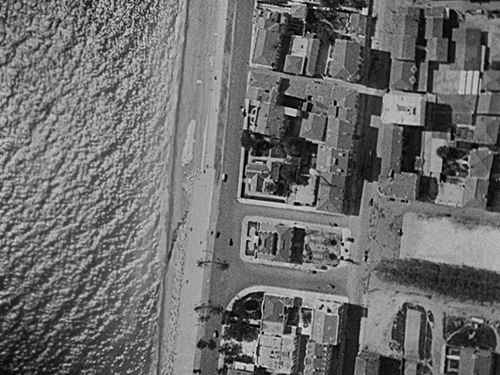
“A social documentary is distinguished from an ordinary documentary and weekly newsreels by the viewpoint that the author clearly supports in it.
This kind of social documentary demands that one take a position because it dots the i’s.
If it doesn’t interest an artist, at least a man will find it compelling. And that’s worth at least as much.
The camera is aimed at what must be considered a document, which will be treated as a document during the editing.
Obviously, self-conscious acting cannot be tolerated. The subject must be taken unawares by the camera, or else one must surrender all claims to any ‘documentary’ value such a cinema possesses.
And the goal will be attained if one succeeds in revealing the hidden reason behind a gesture, in extracting from a banal person chosen at random his interior beauty or caricature, if one succeeds in revealing the spirit of a collectivity through one of its purely physical manifestations.
And all this with such force that from now on the world, which we, indifferent, have heretofore passed by, will be presented to us, in spite of itself, over and above its outward appearances. A social documentary should open our eyes.”
Jean Vigo1
“Jean Vigo’s À propos de Nice (1930) shows how social injustice is inscribed within flesh itself, on walls, within the very fabric of urban organisation, in the concrete occupation of space (rich beaches/poor quarters) and time (leisure/work). It describes injustice’s physical dimension, reconstitutes its symbolic function, demonstrates its violence.
In order to achieve this, a way of organising images must be invented that will join the powers of syntax (what can be shown as a relation, in a conflictual form: class struggle) and parataxis (what refuses relation, generating caesurae, cracks, breaks: for instance, the workers’ smiles). Thus establishing that cinema can elucidate phenomena by removing appearances and recovering social logics.”
Nicole Brenez2
“Jean Vigo has been the key figure in my cinematic education. He made me discover that serious social engagement and formal complexity (or playful consciousness of form) aren’t at odds with each other, that the alleged gap between the two is false, that one is inextricably linked with the other. He taught me that form is always political and conveyed the importance of improvisation, that you have to get to work with reality, that documentary film is always fragmented, always fashioned and processed. Because of him, I now think: documentary films are sounds and images that are left ajar, making documentary films is like swimming.”
Elias Grootaers

